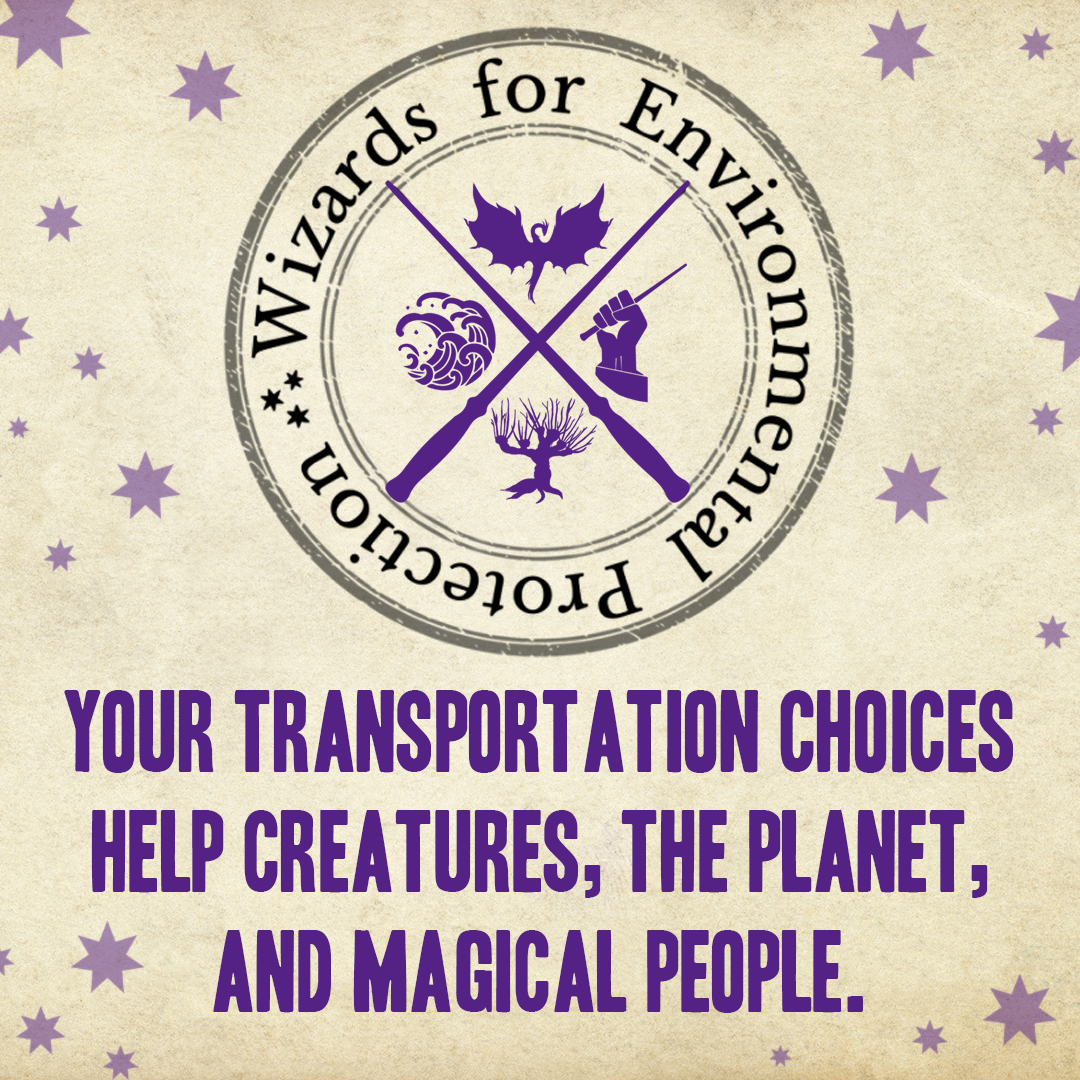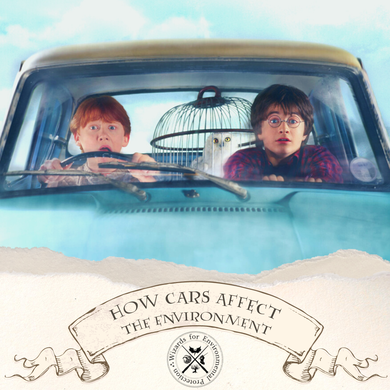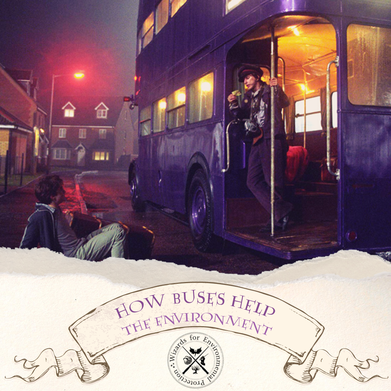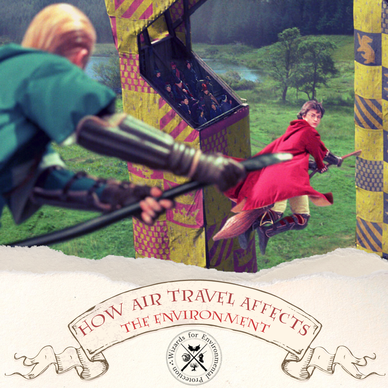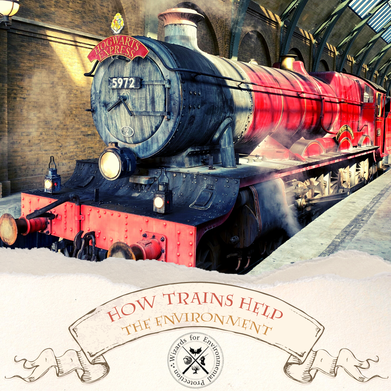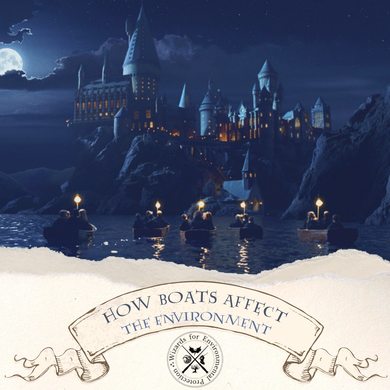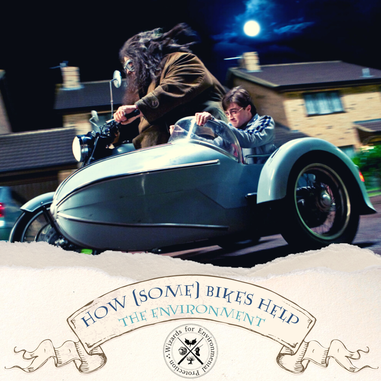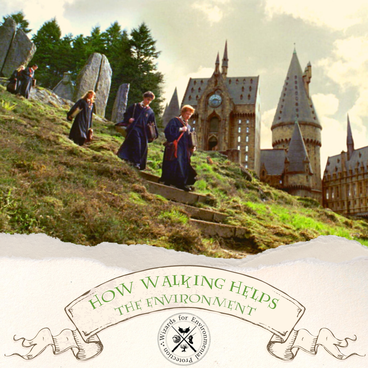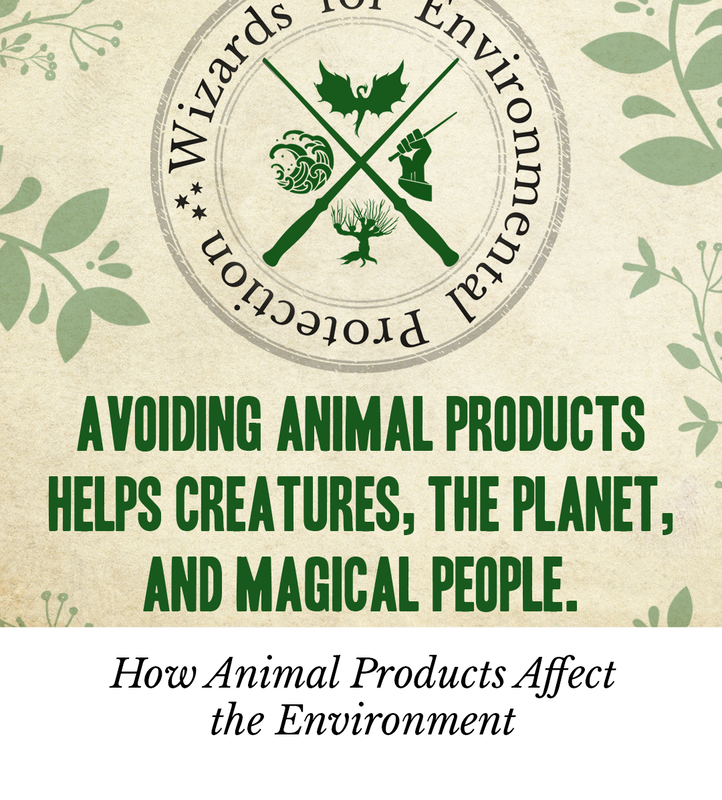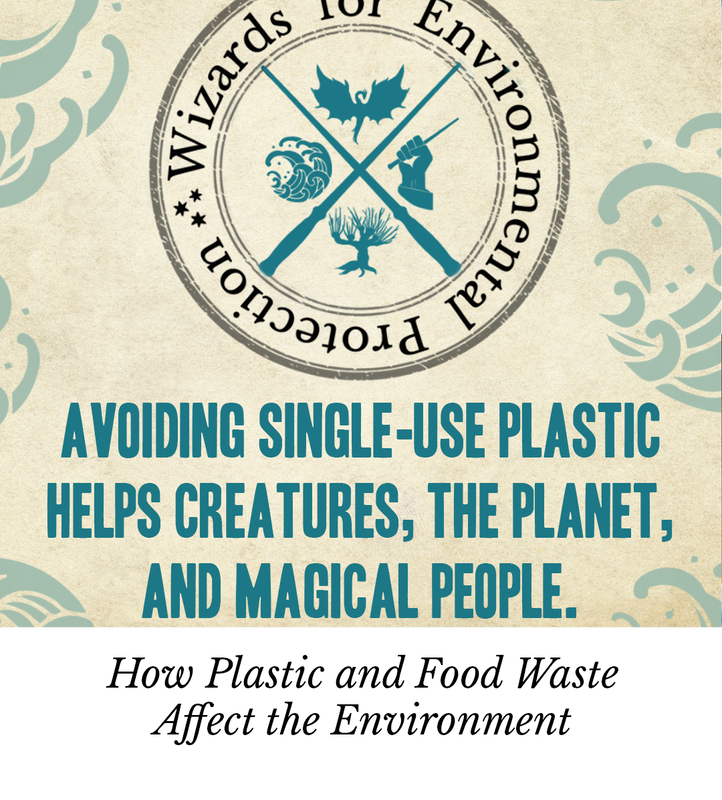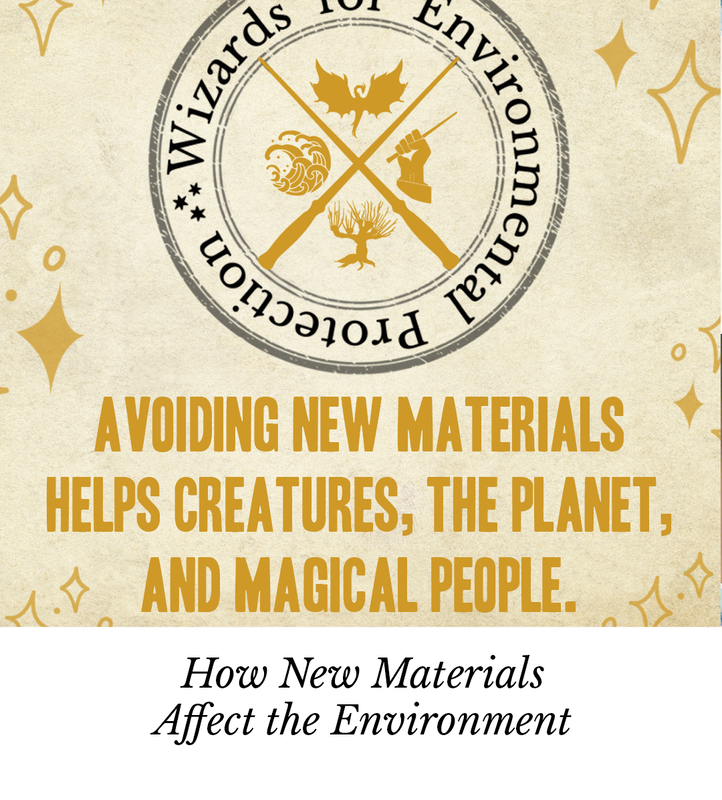Plus, the oil drilled to create gasoline for cars comes with its own heavy price to pay. The drilling process can cause environmental devastation, as seen in the Deepwater Horizon disaster of 2010. Transportation of oil is also fraught with danger to ecosystems and the species that live there. Most notably, the Exxon Valdez ran aground in Prince William Sound in Alaska in 1989, causing 250,000 barrels of crude oil to spill into the surrounding environment and killing hundreds of thousands of animals such as seabirds, seals, orcas, and fish. But we can all do our part in combating the environmental toll of car usage. If we don't have access to the Floo Network, forgot to refill our pot of Floo Powder, or haven't obtained our license to Apparate yet, we can always carpool, take public transit, walk, or bike. And, if we find that having a car is a necessity in areas where there is no public transit, we can look for electric cars. There are quite a few of them out there now, and they can even be bought used!
According to Our World in Data, 60% of road transport in 2016 came from passenger travel, such as cars and motorcycles. The Knight Bus turned out to be a handy form of transport for Harry, and buses in general are a great means of getting around for nearly everyone! While Muggle buses might not be as fast as the Knight Bus when it zigzags between other vehicles, they are a much more efficient form of transportation than individual passenger vehicles. And, more and more bus fleets are running on lower-emission fuel or on electricity. If more people take the bus, there will be fewer cars on the road, and as a result, less traffic! Taking the bus instead of your car also means you can relax and enjoy the ride while reading "The Daily Prophet" or listening to ProtegoCast! We hope you won’t have a bumpy ride!
If you do need to travel by plane, here are a few tips to help reduce your emissions:
All aboard the Hogwarts Express! Perhaps like Ron and Harry, a lifelong friendship will spring out of those three little words: “Anyone sitting there?”
If you don't use a boat yourself, consider where it is you shop and what you eat. If you eat fish and other seafood, remember that large fishing boats contribute to oil pollution, CO2 emissions, and plastic waste. Bycatch from fishing results in the deaths of thousands of dolphins, sharks, turtles, and other sea creatures. Aside from seafood consumption, international imports often arrive by boat, which is a great reason to support local businesses where you can. And if you feel like a trip out by the water, try a slow-moving boat that doesn't use fuel, like a kayak or rowboat. Why not try the Hogwarts boathouse? A nice paddle on the Black Lake sounds refreshing!
CO2e, not to be confused with CO2, is a metric measure used to compare emissions from various greenhouse gases, including but not limited to CO2 and methane. Local air and noise pollution will also improve if more people cycle on a regular basis. If you don’t own a bike, check out where you can rent or buy one, preferably second-hand. Besides being better for the environment, there are many advantages to using a bike rather than a motor vehicle, such as:
So hop on your bike, and if it starts to rain, don’t forget to use the Impervius Charm to repel the water!
This can be a really fun way of getting to know your neighborhood, whether it be along your way to work, school, or wherever the journey may take you. Hint: if you're seeing similar magical or non-magical creatures each time, try looking out at different points in the day. Some creatures prefer the nighttime and will only come out when the sun goes down or when you least expect them! And if you'd prefer to learn another way, pop on an audiobook or podcast and listen while you walk. This is a great way to unwind and de-stress while getting in your daily exercise! There are podcasts on all topics, including all things magic and animal rights on our very own ProtegoCast! Let us know what you spot on your travels. We bet there is something amazing waiting right outside your door! Helpful Resources Books:
Documentaries: Instagram Pages / Tags:
You can calculate your carbon footprint on Carbon Independent's website. Don’t forget to join our Discord server to chat with other animal lovers and tell us how you make transportation choices that are better for the environment. Written by Assya Ahouandjinou, Ruby Shoefield, Valerie Short, and Victoria Tomis Accio more articles:
1 Comment
Alicia Rodgers
9/30/2022 11:43:48 am
Hello, I am a hospitality and tourism management major at Ensign college. I have been researching the affects transportation has on the environment for an assignment for one of my classes. I have utilized this website to obtain information regarding the modes of transportation and how as travelers we can travel more "green" I have listed your site on my assignment as a resource. I wanted to thank you for your research and the insight it gives. I think everyone everywhere should be aware of the importance of traveling green in order to help make our planet healthier and have a positive impact on generations to come! Your site gives awareness to us all to act and travel responsibly. Thank you!
Reply
Your comment will be posted after it is approved.
Leave a Reply. |
The Protego Foundation's work is made possible, in part, thanks to Tylor Starr.
The Protego Foundation and its activities are not licensed by, sponsored by or associated with Warner Bros., J.K. Rowling, or their affiliates. 'Wizarding World,' 'Harry Potter,' ‘Fantastic Beasts' and all related names, characters and indicia are trademarks of and © Warner Bros. - Harry Potter publishing rights © J.K. Rowling.
FEIN 83-3531129
The Protego Foundation and its activities are not licensed by, sponsored by or associated with Warner Bros., J.K. Rowling, or their affiliates. 'Wizarding World,' 'Harry Potter,' ‘Fantastic Beasts' and all related names, characters and indicia are trademarks of and © Warner Bros. - Harry Potter publishing rights © J.K. Rowling.
FEIN 83-3531129

